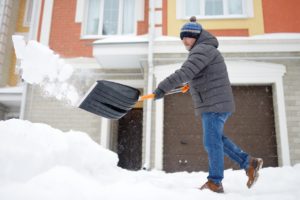When looking for homeowners insurance, it’s worth getting the best-fitting coverage. After all, none of us can predict the circumstances that may lead to the need for a claim, and when you need to use your coverage, you’ll be grateful you had the foresight to set it up appropriately.
That being said, coverage is more than just a flat, uniform investment. Its extent and cost can depend on a range of variable factors, all depending on what provider you go with, what you need covered, and what deductibles you are willing to accept. In Texas, the location of your home can play a significant factor, too, as that will affect the risks your home faces when it comes to hurricanes and severe storms.
Generally, advice columns tend to talk around this subject so as not to give you a direct quote for the cost of home insurance. After all, it’s hard to give readers a direct assessment without knowing their personal situation. That said, it’s important for providers to be transparent regarding what it is that could influence the cost of a given package—and that’s exactly what we intend to do.
With that said, your home insurance cost will likely be affected by the following variables:
Your Home Insurance Agency
Of course, every agency will have their own means of evaluating risk. Some may be willing to take on certain risks at a price point, while others may not. Some agencies may offer a deal if you combine multiple sets of coverage at once, such as homeowners insurance and auto insurance.
We recommend that you shop around and compare quotes, but that you also prioritize agencies that offer transparency in their policies and communication.
Your Home’s Worth
Of course, the valuation of your home will also play into what estimate coverage costs you can expect. The higher the value, the potential higher the reimbursement for would-be damage, and so the higher the premiums.
Your home’s worth can also be decided by its size and age. If your home is particularly old or located in a certain area, it may even be considered listed or protected, and this can increase the value of your premiums, too.
An older home may not require insurance policies that are as high to fully cover it because it’s no longer in new condition, but if its age causes structural risks that exceed those of normal wear and tear, this could cause your home insurance rates to go up as potential damage becomes more likely.
Your home’s worth may also be affected by what your plans for renovation are. Itemizing that cost list can help you plan for future coverage needs.
Your Home’s Location
Location is everything when deciding on a property, and so it’s certainly significant when looking to insure one. Thorough investment in an area may, for example, showcase the fortunate future of your property’s valuation.
If you live in an area with higher-than-average claims against flood or wind damage, this can also factor into the decision made by the provider. Furthermore, the history of said location, such as its history of hurricane damage, can play into the decision.
Hurricanes are a concern for many Texas homes and businesses along the Gulf Coast. Your home may not be eligible for hurricane insurance if you live in a high-risk area, but you could still obtain aid from the Texas Windstorm Insurance Association (TWIA) for storm coverage, or from the National Flood Insurance Program (NFIP) for flooding.
Crime rates, private roads, and even security systems can also all influence how your home integrates within its wider community and factor into the price of the policies quoted to you.
With this advice, we hope you can now have more insight into what factors might affect your home insurance costs and better consider how to search for the best homeowners insurance package.




